The National Agricultural Extension Center has just organized a workshop on “Current status of agricultural material use and waste collection and treatment solutions in coffee production” to raise awareness for businesses and people in effective and sustainable coffee production.
On the morning of October 28, in Da Lat City (Lam Dong Province), the National Agricultural Extension Center coordinated with relevant units to organize a workshop on "Current status of agricultural material use and solutions for waste collection and treatment in coffee production".
According to Mr. Le Quoc Thanh, Director of the National Agricultural Extension Center, the workshop was organized to raise awareness among agricultural extension officers, community extension officers, farmers, coffee producers and related partners about the current status of pesticide use and the impact of pesticides on the environment.
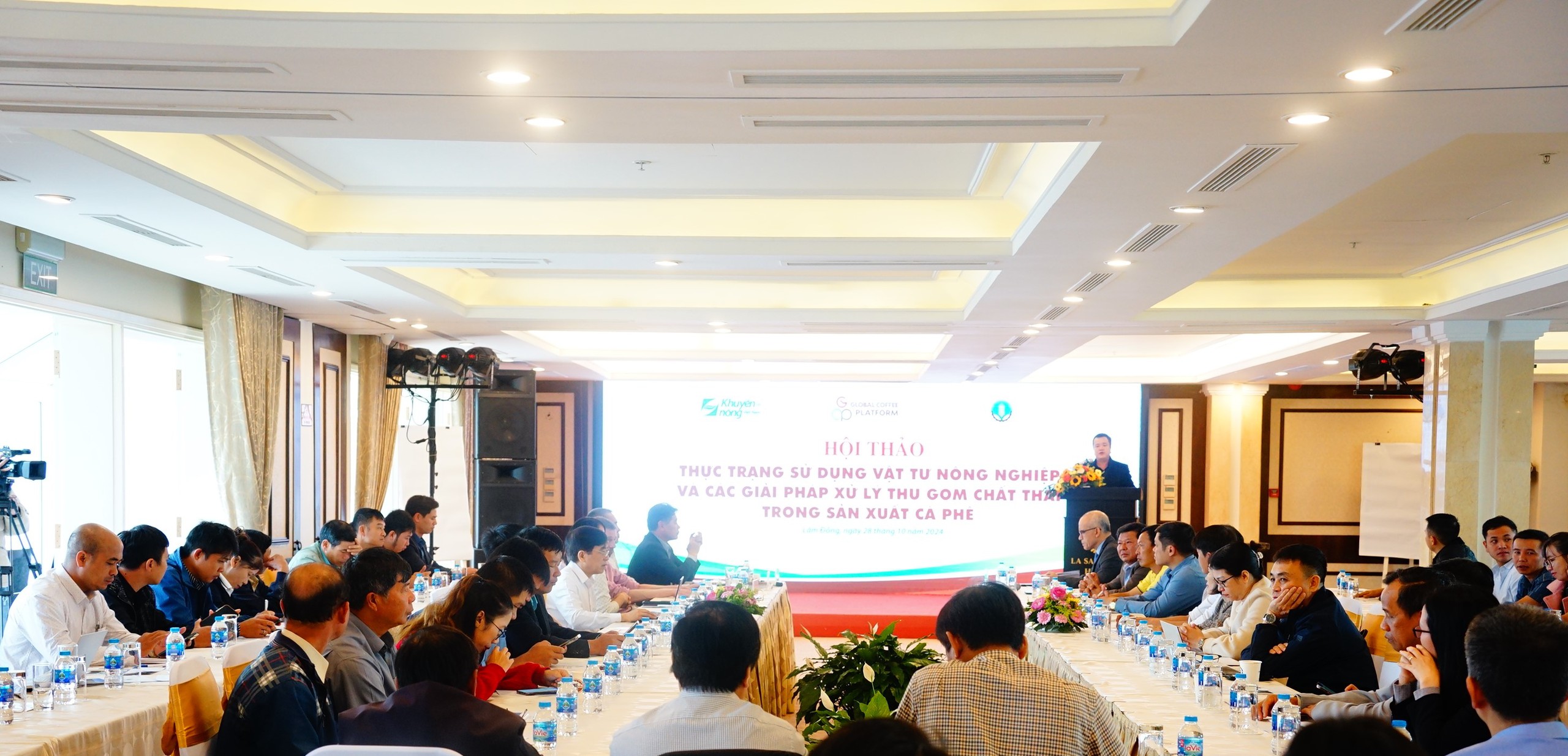
Scene of the workshop "Current status of agricultural material use and solutions for waste collection and treatment in coffee production". Photo: Van Long
The workshop also helps coffee makers master the methods of collecting and managing waste in coffee production, enhancing their responsibility in the use of agricultural inputs (seeds, pesticides, herbicides, fertilizers, irrigation water, etc.) in coffee production, contributing to improving product quality, protecting community health and the environment.
According to Mr. To Viet Chau - Deputy Director of the Department of International Cooperation (Ministry of Agriculture and Rural Development), coffee is one of Vietnam's key agricultural export products, reaching 4.18 billion USD in 2023. This is a product line that contributes significantly to creating jobs and increasing income for farming households.
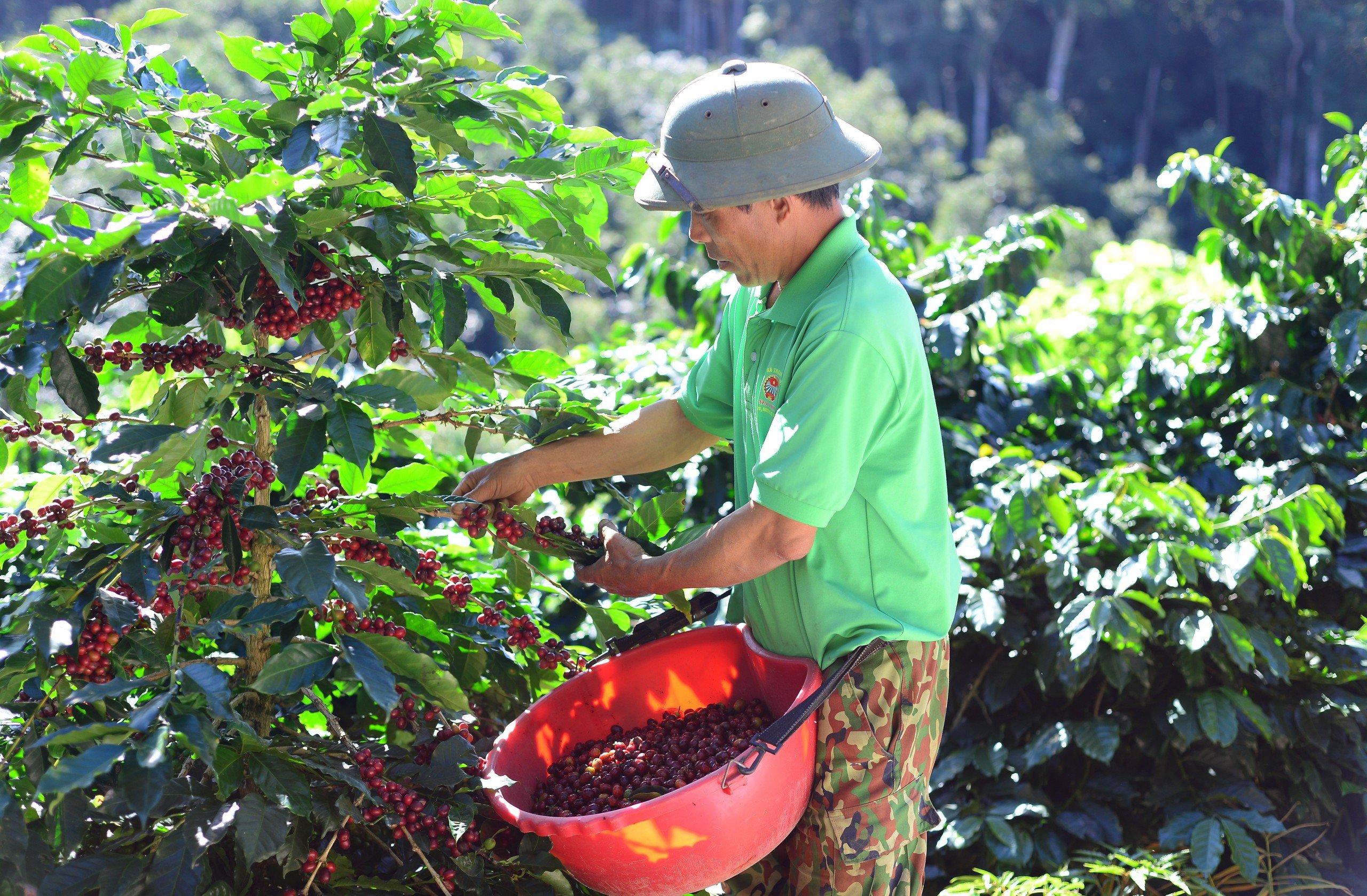
Coffee is one of Vietnam's main agricultural export products.
However, according to Mr. Chau, in recent years, due to labor shortages and increased production costs, coffee producers have used more herbicides, affecting water resources, public health and Vietnam's coffee exports.
Improper use of agricultural chemicals/inputs is still common in coffee production, farmers are still using pesticides that are banned or not on the list permitted by the Ministry of Agriculture and Rural Development. Along with that, the collection and treatment of waste in coffee production, including shells, packaging, containers of agricultural materials such as fertilizers, chemicals, and pesticides, is becoming an increasingly pressing issue when these types of waste are discharged directly into the environment and water sources.
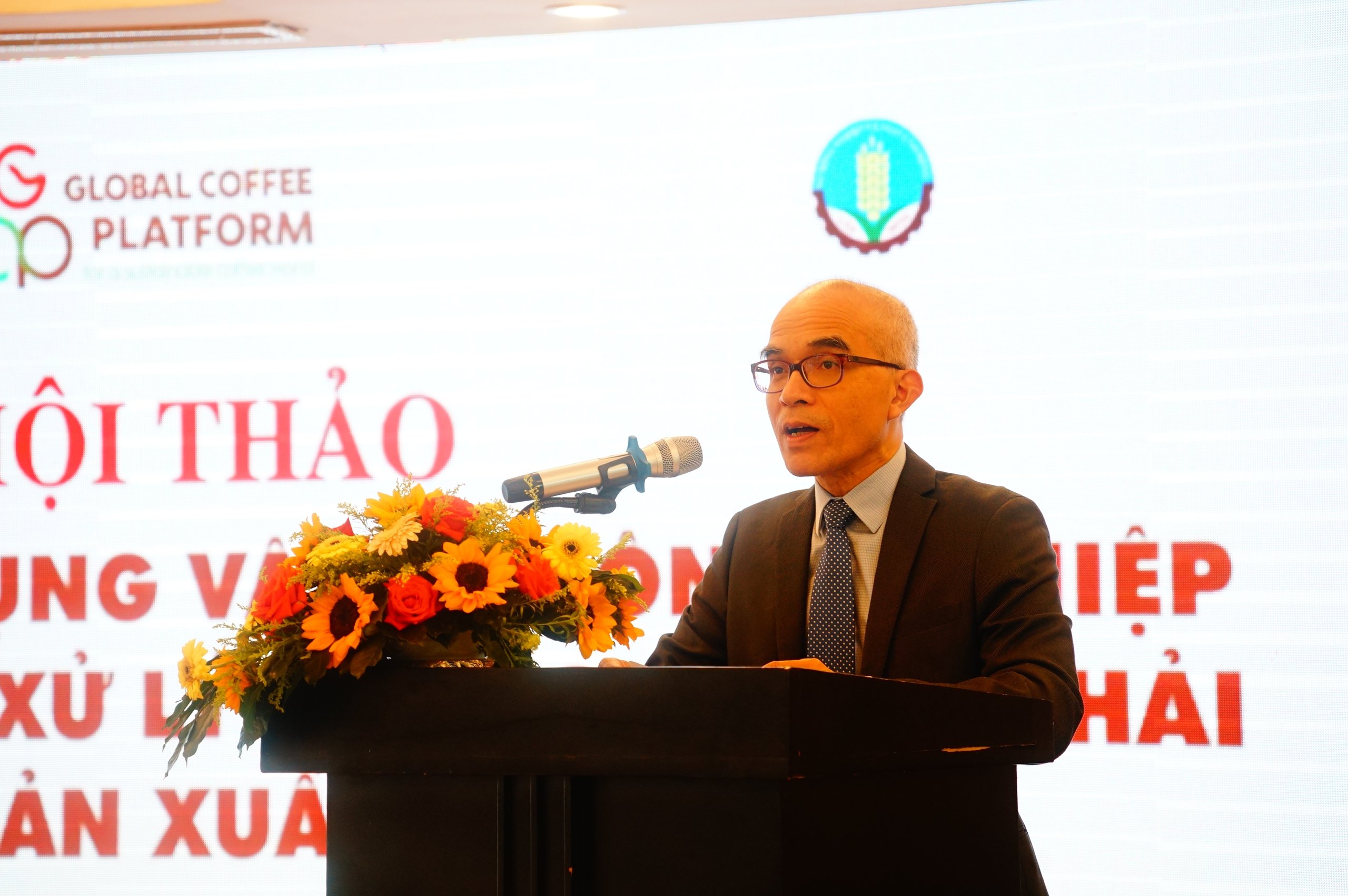
Mr. To Viet Chau spoke at the conference.
Meanwhile, representative of the Plant Protection Department, Ms. Nguyen Thi Hoai, said that in 2022, the whole country collected more than 400,000 kg of used pesticide packaging. Of which, more than 215,000 kg were treated by burning according to regulations; more than 35,000 kg were self-treated by burning and buried in local landfills. More than 16,000 kg of used pesticide packaging have not been treated or destroyed.
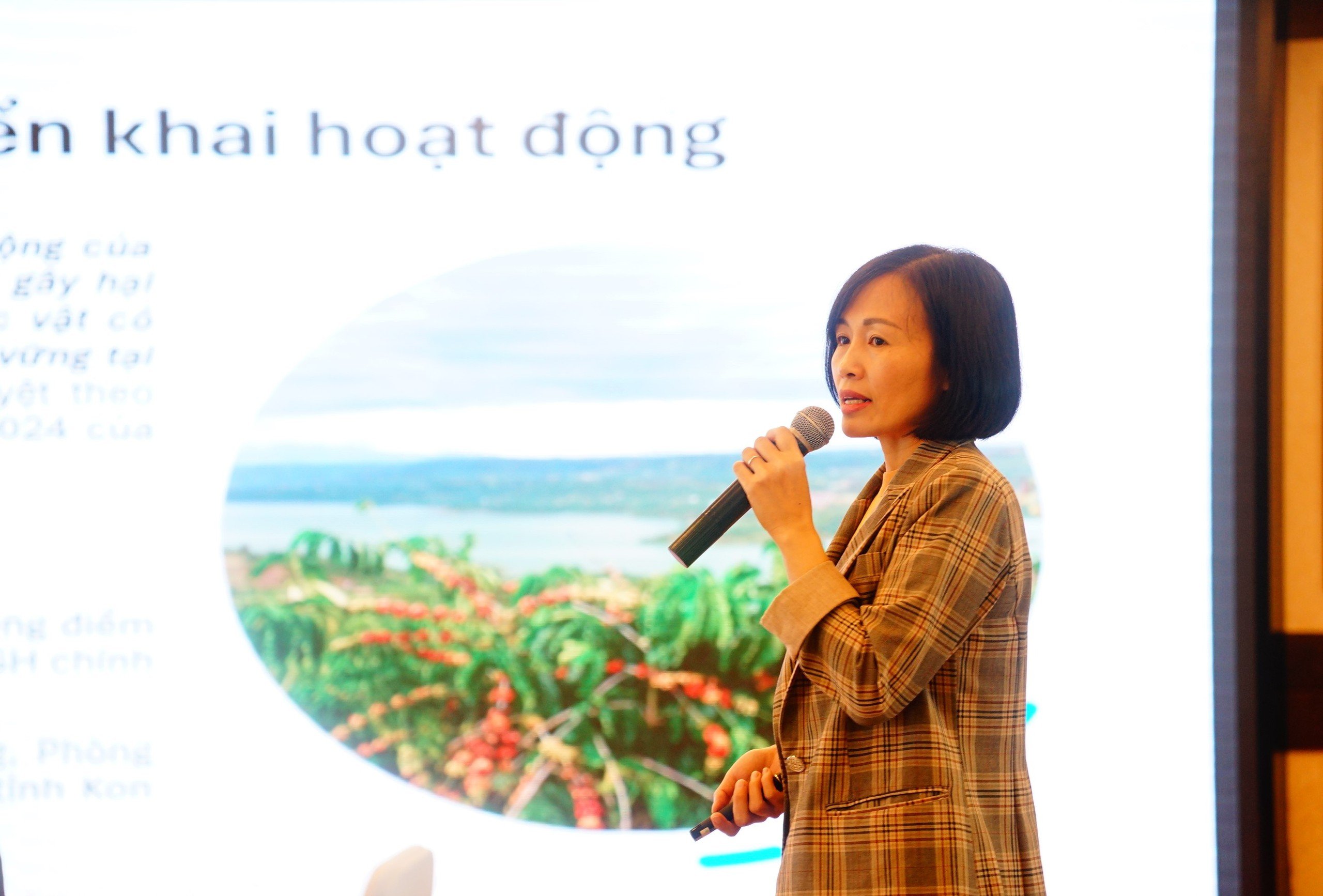
Ms. Nguyen Thi Hoai said that 48/63 provinces and cities have issued documents guiding the collection, transportation and treatment of used pesticide packaging.
The collection of pesticide packaging has received special attention. 48/63 provinces and cities have issued documents guiding the collection, transportation and treatment of used pesticide packaging; 42/63 provinces and cities have 57,910 collection tanks.
In some localities, the collection, treatment and recycling rate of crop by-products is still low. The amount of plastic waste generated in agricultural production is increasing, and reducing and choosing alternative materials is not feasible.
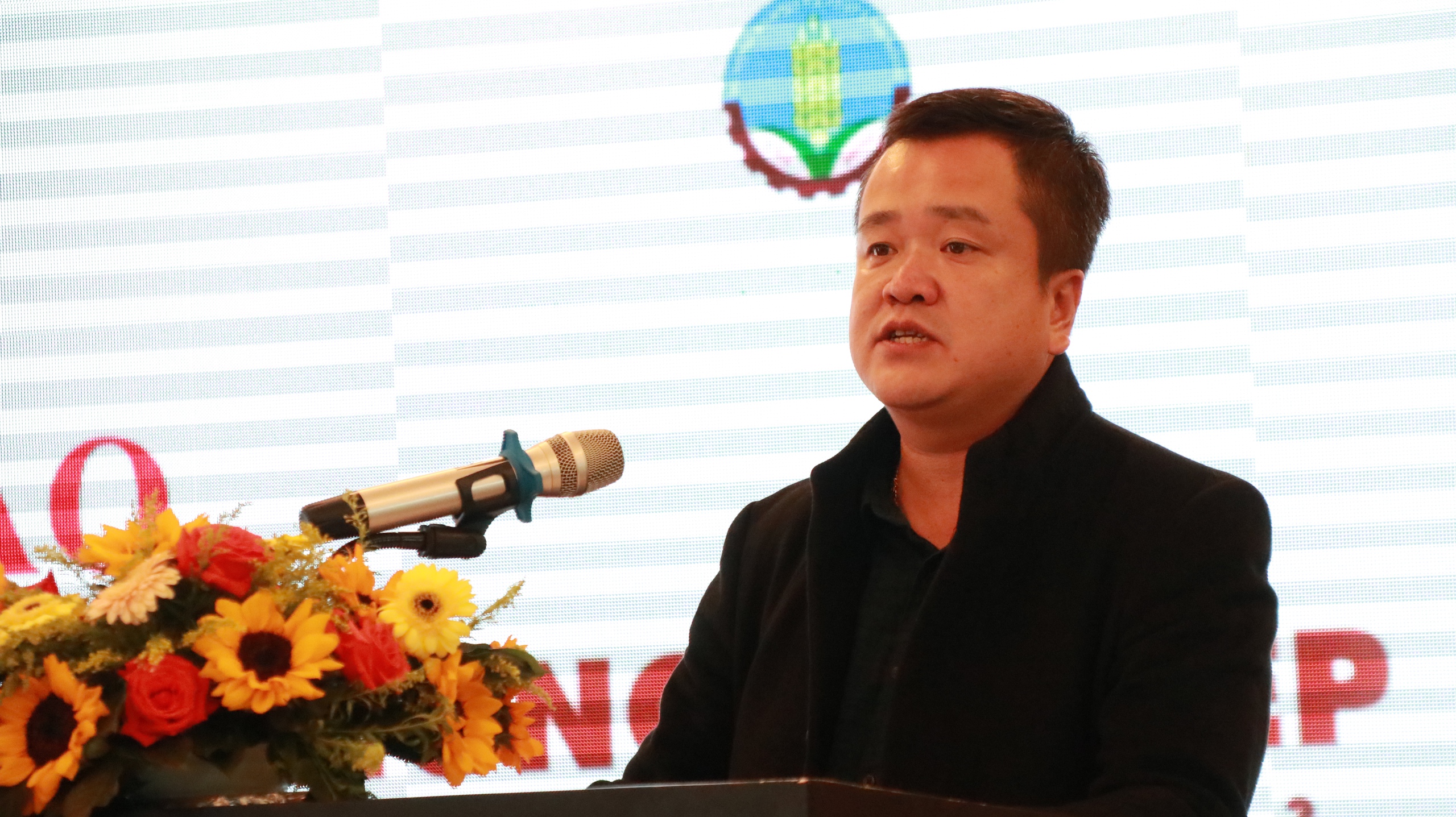
Mr. Nguyen Ha Loc - Deputy Director of the Department of Agriculture and Rural Development of Lam Dong province spoke at the workshop.
In Lam Dong province, Mr. Nguyen Ha Loc - Deputy Director of the Department of Agriculture and Rural Development of the province said that in 2023, the whole Lam Dong province used about 3,400 tons of pesticides to manage pests on crops. With the amount of pesticides used, about 170 tons of pesticide packages were generated each year.
For coffee trees, by-products from coffee husks are more than 210,000 tons composted into fertilizers, creating about 145,000 tons of organic fertilizers to meet clean production requirements. Therefore, to continue to overcome the shortcomings in the treatment of waste and by-products in agriculture in general and in coffee production in particular, Mr. Loc said that it is necessary to propose many practical solutions in the coming time. In particular, raising awareness and responsibility of people in managing and minimizing waste in agricultural production.
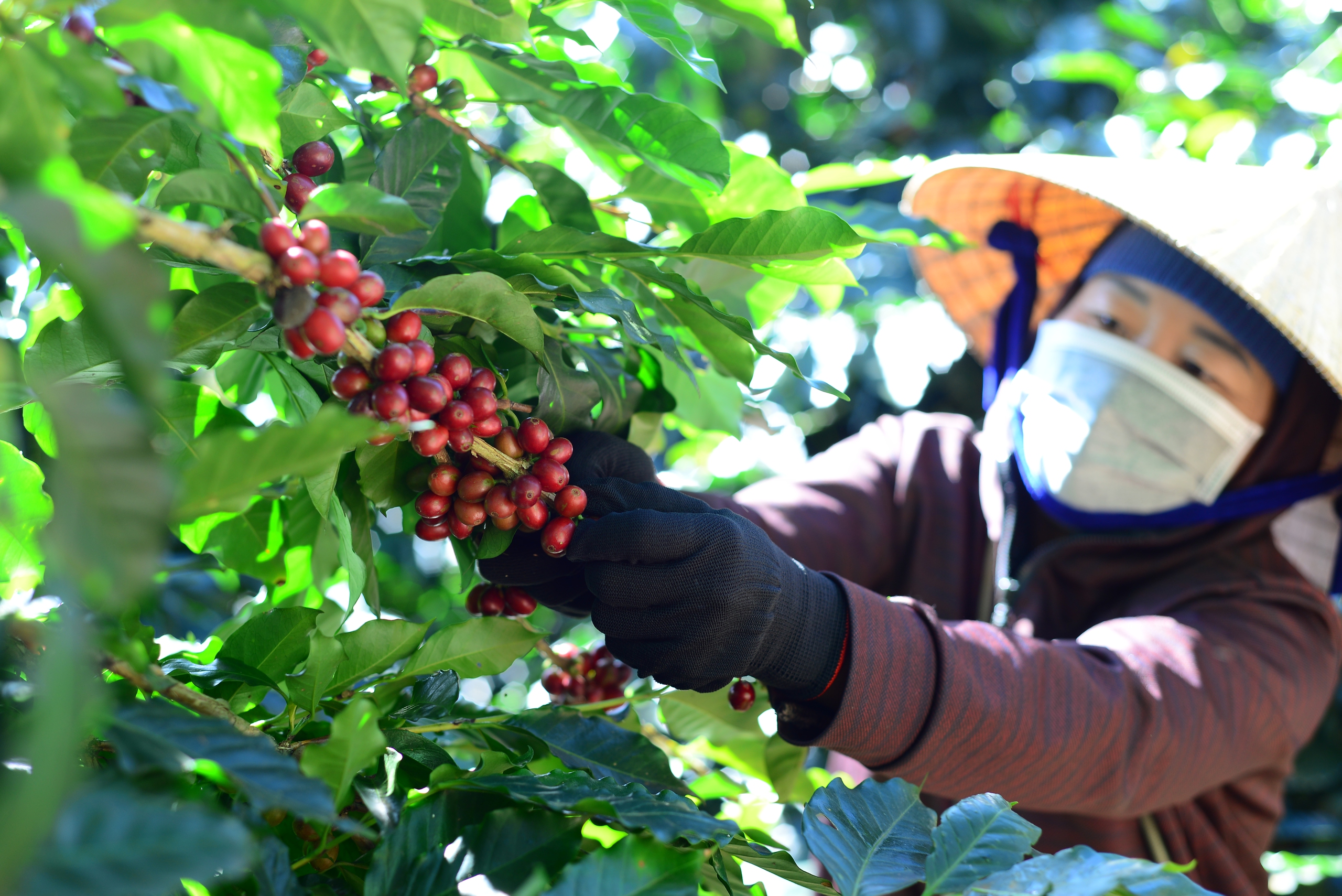
Coffee is one of Vietnam's billion-dollar export industries.
According to Dr. Nguyen Viet Khoa - National Agricultural Extension Center, agricultural wastewater contains many pollutants such as nitrogen, nitrate, phosphate, pesticides and harmful bacteria, which can pollute the water environment and affect the health of humans and animals.
In addition, agricultural chemicals such as pesticides, herbicides and chemical fertilizers used by people have caused imbalances in the soil microflora. This leads to increasingly barren soil and loss of important nutrients available in the soil. As a result, agricultural products from cultivation do not meet the desired quality requirements.
Therefore, to minimize waste in coffee production towards sustainable development, it is necessary to raise awareness of the parties: Collection; transportation; classification, treatment; reuse. In particular, it is necessary to raise awareness and responsibility of agricultural producers in managing and treating waste in coffee production; not reusing packaging, containers of fertilizers, pesticides, chemicals to contain products; packaging, packages of pesticides, fertilizers after use must be collected and treated according to regulations on environmental protection; garbage must be collected and classified properly, transferred to functional units with appropriate capacity for treatment according to regulations on hazardous waste management...
Source: https://danviet.vn/phat-trien-san-xuat-ca-phe-hieu-qua-ben-vung-can-nang-cao-nhan-thuc-cac-ben-trong-viec-xu-ly-chat-thai-20241028123038294.htm


![[Photo] "Lovely" moments on the 30/4 holiday](https://vphoto.vietnam.vn/thumb/1200x675/vietnam/resource/IMAGE/2025/5/1/26d5d698f36b498287397db9e2f9d16c)

![[Photo] Binh Thuan organizes many special festivals on the occasion of April 30 and May 1](https://vphoto.vietnam.vn/thumb/1200x675/vietnam/resource/IMAGE/2025/5/1/5180af1d979642468ef6a3a9755d8d51)


![[Photo] Ha Giang: Many key projects under construction during the holiday season](https://vphoto.vietnam.vn/thumb/1200x675/vietnam/resource/IMAGE/2025/5/1/8b8d87a9bd9b4d279bf5c1f71c030dec)
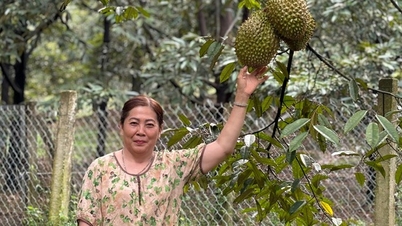

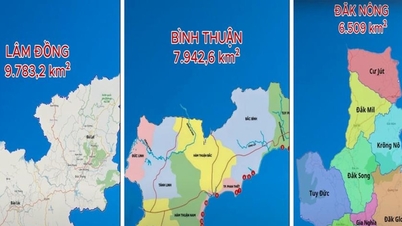

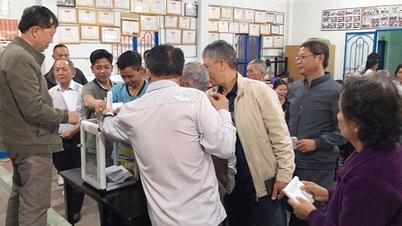


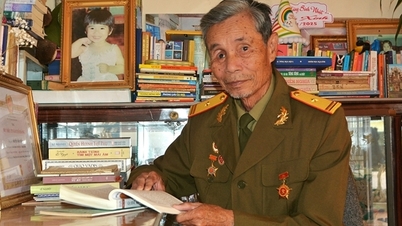



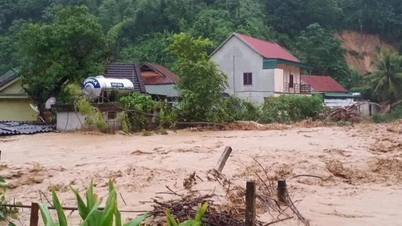
![[Photo] Soldiers and workers help people build houses](https://vphoto.vietnam.vn/thumb/402x226/vietnam/resource/IMAGE/2025/5/1/3a705ca5655e44f3a6d0554f0bf0563d)

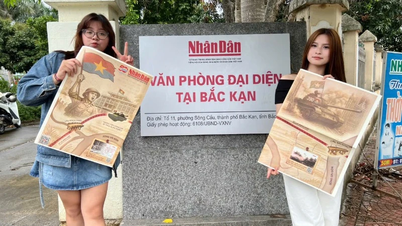
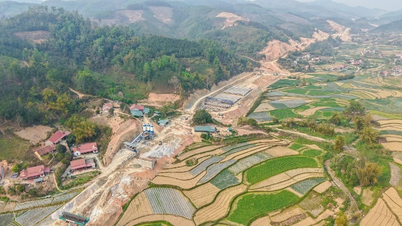





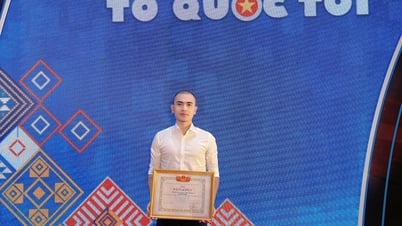
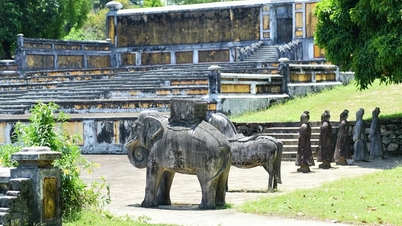
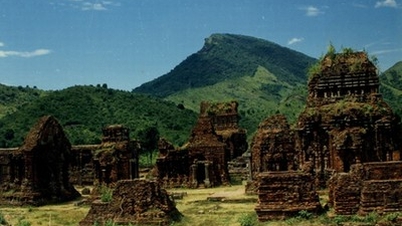

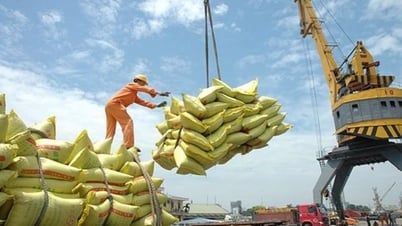














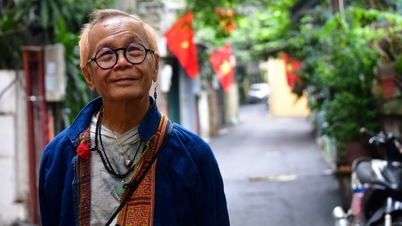




















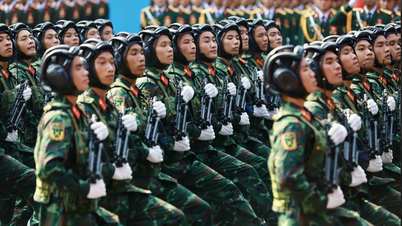

































Comment (0)